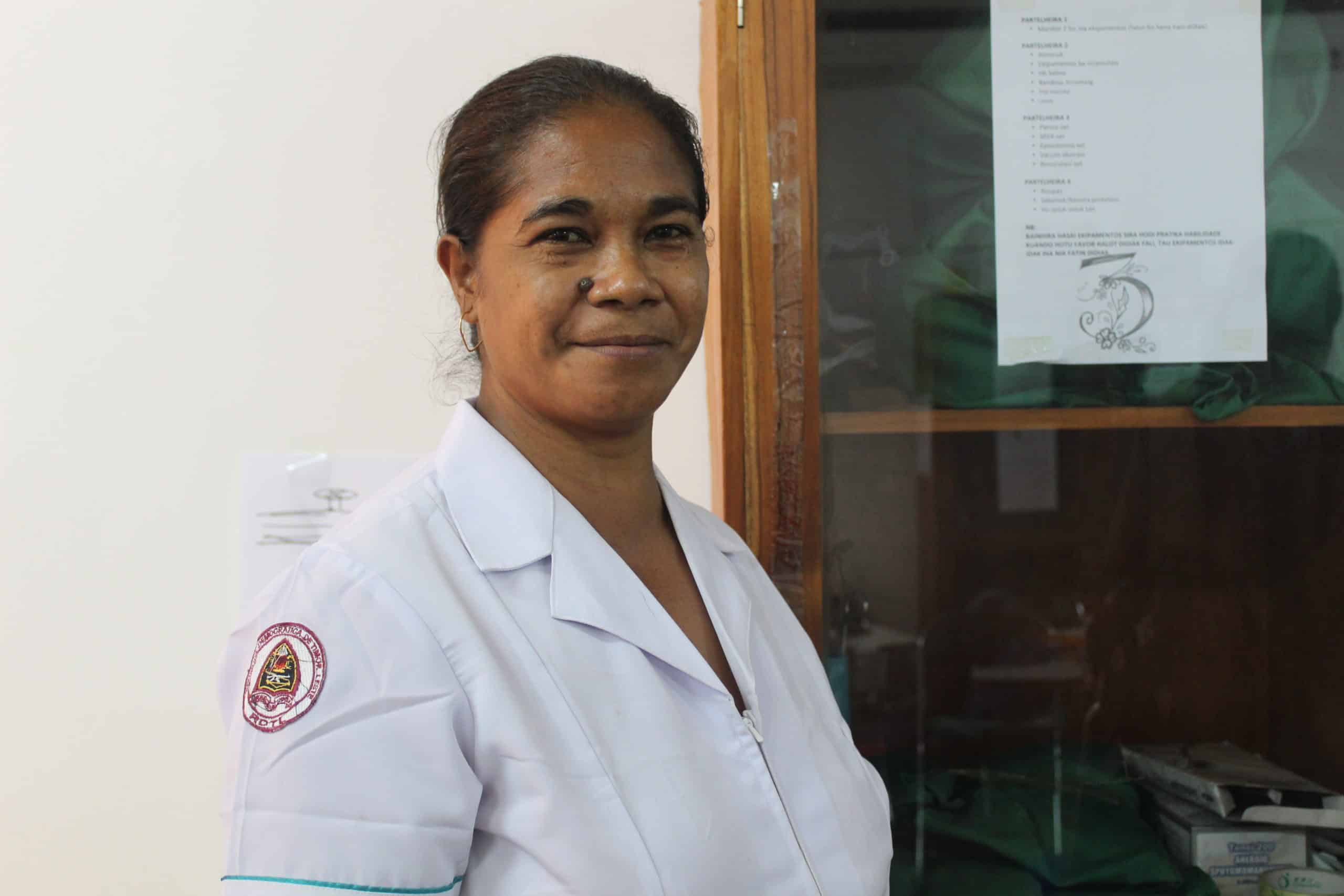Along the Journey to Self-Reliance, Midwives in Timor-Leste Gain Lifesaving Skills and Newfound Confidence
March 12th, 2020 | story
Catarina and Juliana, two senior midwives from Timor Leste’s Covalima Municipality, and 11 other health providers from five municipalities recently completed a 26-day basic emergency obstetric and newborn care (BEmONC) training. They join more than 80 health providers throughout the country who have been trained to manage obstetric complications at the primary health care level.
Catarina and Juliana work in Tilomar and Fohorem Health Centers, respectively, and over the past three years have benefitted from intensive technical assistance from USAID’s Reinforce Project. While their facilities, like others in Covalima, have improved coverage and quality of maternal, newborn, and child health care services, Catarina and Juliana themselves lacked the skills to help women who had obstetric complications. “When women would arrive at the health center with hypertension, a miscarriage, or a prolonged labor, I had to refer them to the hospital because I couldn’t manage these cases myself,” recalls Juliana. Catarina, who also referred such cases, panicked when she was selected to participate in the training. “I suddenly felt pressure, because I knew the training would be long and demanding, and that afterward I would have the responsibility to treat complications.”
Because so many midwives have similar misgivings, the BEmONC training is designed to build participants’ confidence—as well as skills—by alternating theoretical and practical sessions. During the day, trainees learn the theory behind the seven signal functions of BEmONC and practice them at the skill lab. At night, they practice the skills at the maternity ward, coached by Timorese doctors and senior midwives.

USAID’s Reinforce worked with the National Institute of Health (INS) to introduce the new training methodology, which for the first time includes a practical component. The project funded the creation of two new skills labs for INS – one in the capital, Dili, and one in Covalima – where trainees can hone their skills on mannequins before proceeding to real clients. The project also has made it possible for a cadre of Timorese health providers to become certified as master trainers, ensuring the country can continue to train its own health workforce.
During their month of training, Catarina and Juliana reviewed what they had learned previously about infection prevention and normal labor and childbirth, and learned and practiced how to manage complications, which they had been accustomed to referring to an obstetrician. “[This last week] we learned about managing puerperal sepsis, performing resuscitation and post-partum care, and managing the third-stage of labor,” says Juliana, looking much more relaxed than she had at the outset of the training. She also appreciates the new training approach, which she says was far more helpful than that of trainings she attended in the past.
There is a very good balance between theory and practice, and a real mentoring relationship is established between the trainers and us.”

Although the main training is over, coaching is ongoing. Jose Antonio, one of the BEmONC trainers, is adamant that communication be maintained. “Even though Catarina and Juliana are back at their health facility, we don’t leave them alone. We will still help them handle cases anytime they need; we will also conduct supportive supervision at their workplace for three months to discuss the complications they have managed since the training.”

Catarina and Juliana continue managing cases in their respective health centers with regular communications between their trainer to maintain the competency and confidence.
I learned a lot; I’m happy as (the training) improved my skills and increased my knowledge,” said Catarina, who was very active during the discussions.
We strive to build lasting relationships to produce better health outcomes for all.